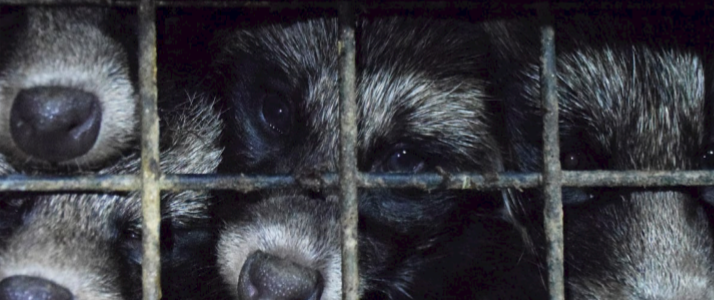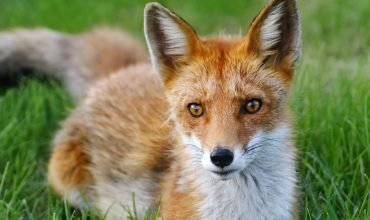“It’s one more sign the fur industry is struggling”- that was the reaction of a local anti-fur actvisit in the US recently, as it was confirmed that the North American Fur Auction (NAFA) had been taken over by Finnish fur group Saga Furs, having descended into near financial ruin.
Last autumn, NAFA, entered court-supervised restructuring- a serious admission of its financial woes.
According to court documents, NAFA has almost $25.8 million worth of consigned pelts in warehouses around the world and has been fielding calls from farmers and producers trying to get them back. Records list more than $300,000 in unsecured debts to fur farmer in Wisconsin alone.
NAFA conceded that dramatic declines in prices contributed to the company’s financial woes but, according to court records, NAFA became insolvent when its primary creditor, the Canadian Imperial Bank of Commerce, cut off funding in September, making it impossible for the company to meet its obligations, including payments to farmers who depend on company loans to feed their mink.
The international fur trade suffered another major blow as California recently became the first state to ban the production and sale of furs state-wide. Cities had approved their own bans previously, but this is the first time a state has taken this legislative step. California Legislative Assembly Bill No. 44 will take effect on January 1, 2023. (Other states may follow. A proposal to ban the manufacture and sale of animal pelts was introduced in New York’s state legislature in March 2019, and in Hawaii in early 2019).
The Washington Post has quoted Mark Oaten, the disgraced former MP who now runs the International Fur Federation, as saying: “I blame myself and I blame my organization.”
However, 2020 is promising to be a crunch year for the campaign against the cruel and unnecessary fur trade, with key fur trade players talking up plans for a major fightback for fur.
“What you’re going to see from us in 2020 is more hard-hitting messages about issues rather than models wearing fur,” Oaten says. “We need, in 2020, to be better at articulating what natural fur means.”
This has already begun, with the fur trade filing a major legal challenge to the fur sales ban in San Francisco. In January, Fur Europe held a major three-day exhibition in the European Parliament building.
- Kopenhagen Fur Auction Cancelled– The coronavirus crisis has forced the fur industry’s major auction house, Kopenhagen Fur, to postpone its February auction. The fur trade had planned to try to sell around 2 million mink skins at the event. China, where the health crisis has originated is the key market for fur trade sales. This is considered a blow to the fur trade, as Kopenhagen Fur admits that it still has around 600,000 unsold mink pelts left over from 2019.
- Hong Kong International Fur & Fashion Fair 2020 has also been postponed: “In light of the development of the Coronavirus outbreak, the Hong Kong Fur Federation treats the safety of our exhibitors, buyers and members as our top priority. We are taking precautions and safety measures as recommended by the local Department of Health in Hong Kong and mainland as well as the World Health Organisation seriously and therefore resolved to postpone the Hong Kong Fur Fair to a later date which is tentatively planned to be in the middle of the year.”




